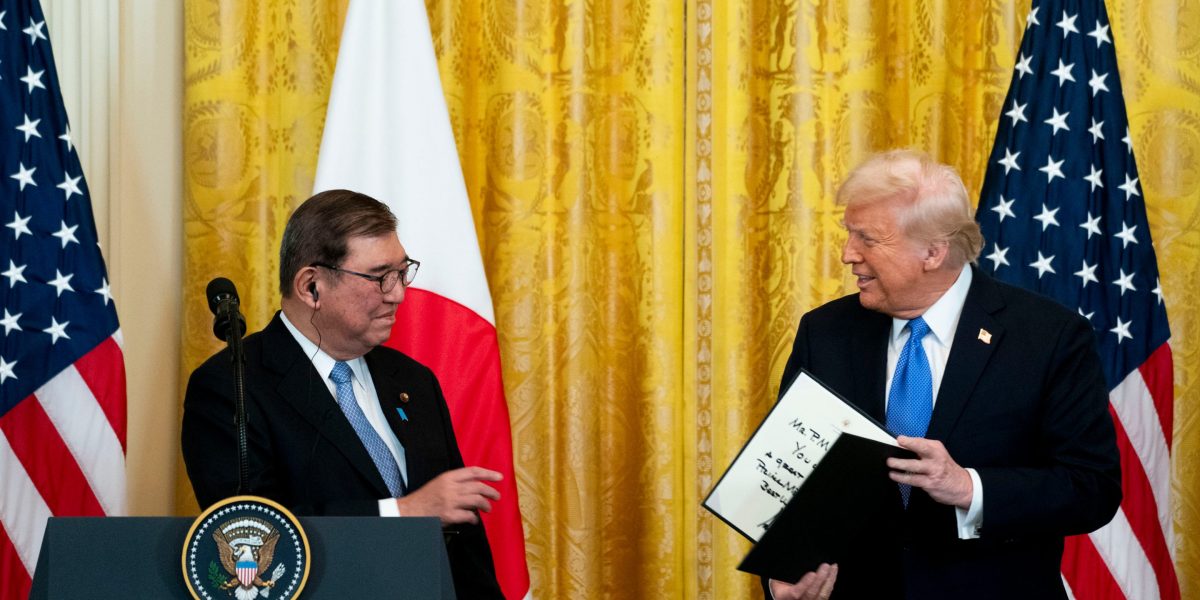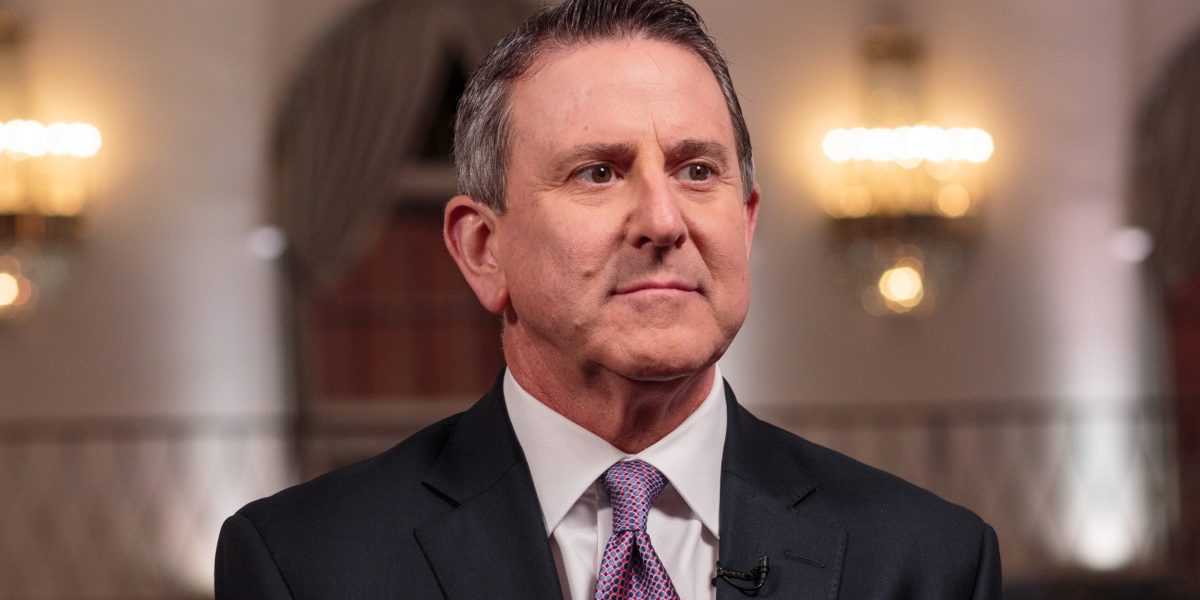- Grocery chain Albertsons is taking a hard-line approach to tariffs, telling its suppliers it won’t accept any price hikes, according to a letter from the company’s head of merchandising. “We are not accepting cost increases,” the letter states, before spelling out a multipart approval process for suppliers hit by levies.
One of America’s largest supermarket chains is telling suppliers they must eat cost hikes owing to increased tariffs.
Albertsons, which owns 2,200 grocery stores across the U.S., sent a letter to suppliers in late March spelling out how it would deal with price hikes.
“With few exceptions, we are not accepting cost increases due to tariffs,” the letter read (emphasis in the original).
“Suppliers are not permitted to include tariff-related costs in invoices without prior authorization by Albertsons Companies,” it further stated, adding, “Any invoices that include such charges without prior authorization will be subject to dispute and may result in payment delays.”
America’s second-largest grocer explained that this policy stemmed from its commitment “to maintaining the value propositions our customers expect.”
Instead, suppliers hit by tariffs will be forced to go through a multistep process to “request a cost change” for the goods they supply to Albertsons, starting with giving the company 90 days’ advance notice. They will need to fill out cost-change forms, offer “a detailed explanation of the tariff impact” and hand over supporting documents, such as tariff notices or import duty receipts.
Once all documents are submitted, the supplier will need to wait another 30 days for Albertsons to review. And even then, approval “is not guaranteed,” the letter said.
Albertsons did not respond to a request for comment about the letter.
The missive highlights one of many tactics retailers are using to get around the Trump administration’s on-again, off-again tariffs on many imported items.
After President Donald Trump imposed surprise tariffs on China in late February, Walmart tried a similar pressure tactic with its Chinese suppliers, reportedly asking them for major price cuts, in some cases as much as 10%, according to Bloomberg. However, price cuts were a nonstarter for some suppliers, whose margins could be below 2%, the outlet reported, and Chinese officials soon launched their own pressure campaign on Walmart.
Meanwhile, Amazon is also attempting to renegotiate some of its orders to keep prices low, CNBC reported. CEO Andy Jassy told the outlet that sellers on the platform would likely try to pass higher costs on to consumers, adding, “I understand why.”
Trump’s tariffs have roiled markets and sent consumer sentiment downward as shoppers broadly expect price hikes as a result of the highest taxes on foreign trade in nearly a century.
But Albertsons’ reply, to detractors, is also a sign the chain is wielding its market power like a cudgel, forcing smaller suppliers to bend to its will.
With tariffs, “the cost of many items is going to spike, and suppliers will go out of business if they can’t cover those increased costs,” Matt Stoller, an anti-monopoly specialist and director of research at the American Economic Liberties Project, wrote Thursday, calling the Albertsons demand “absurd.”
David Dayen, the executive editor of progressive magazine The American Prospect, who first uncovered the letter, held it up as a sign that big companies could pass on price hikes freely while smaller competitors would suffer or even go out of business.
“Grocery suppliers whose sourcing or manufacturing is overseas have clearly incurred costs on its products, but hardball like this would mean they would have to compensate for losses with other retailers,” Dayen wrote.
A similar dynamic took place during the supply-chain shortages prompted by the COVID pandemic, when large grocery chains took advantage of the disruption to hike prices and impose stricter requirements on suppliers, according to a Federal Trade Commission report.
Albertsons has thousands of locations, mostly in the Western U.S., and owns brands including Vons, Safeway, Acme, Shaw’s, and Randalls. It’s second in size only to Kroger. The two chains attempted a merger in 2022 that would have been the largest in industry history, but the $24.6 billion deal fell apart after multiple legal challenges.
This story was originally featured on Fortune.com
Source link

 Politics8 years ago
Politics8 years ago
 Entertainment8 years ago
Entertainment8 years ago
 Entertainment8 years ago
Entertainment8 years ago
 Entertainment8 years ago
Entertainment8 years ago
 Tech8 years ago
Tech8 years ago
 Tech8 years ago
Tech8 years ago
 Tech8 years ago
Tech8 years ago
 Tech8 years ago
Tech8 years ago







